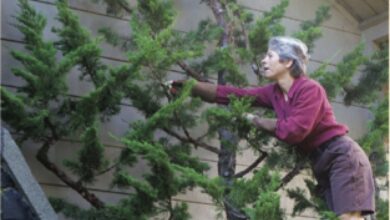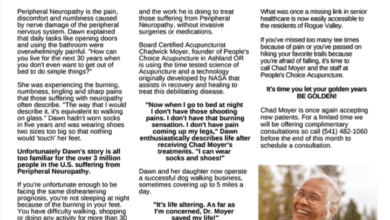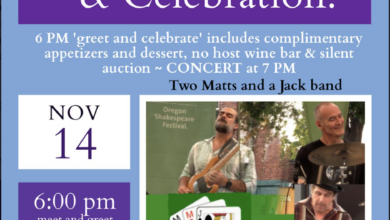Dr. Dane Roubos – Holistic Brain And Body Care
Introducing Dr. Dane Roubos, a chiropractic physician & healing coach. Originally trained as a massage therapist, Dr. Dane’s career has spanned over 44 years with the last 9 years spent practicing chiropractic (eliminate “medicine”) here in Ashland, Oregon. In today’s interview I speak with Dr. Dane to learn more about his holistic approach to healing and life experiences. We also look deeper into holistic healing and explore it’s broader implications and possibilities.
Dr. Dane, thank you very much for taking the time to speak with us today. To begin with, will you please tell us more about your background?
I started out as a massage therapist in 1974, and graduated from Logan College of Chiropractic in 1982. After being in practice for 7 years, I was offered a faculty position at Northwestern College of Chiropractic, and spent 10 years teaching and working in the clinic. I began my practice in Ashland in 2008. I was kind of an information junkie – always reading and attending seminars where I studied nutrition, lab work, acupuncture, Craniosacral technique and other manual therapies.
It seems that the first half of my career was largely focused on the physical aspects of healing, and becoming proficient with that. I was always trying to fix everyone who came in the door. During the second half of my career, I’ve been expanding my experience of the non-physical factors that affect healing. These are the mental, emotional and spiritual aspects of our being. Now, I’m more interested in being fully present with my clients, listening and reflecting where they’re at.
What calls you to do the work that you do, and where do you find inspiration?
When someone first suggested that I look into chiropractic, it was like the clouds parted and the sunbeams came through. It felt like a calling, and this path has kept me engaged for a long time. I like that new research keeps coming out that supports natural approaches.
I feel it’s an honor to support my clients in reaching their health goals. People place their trust in me when they’re in a vulnerable place, and I don’t take that lightly. I’m inspired by many of their stories, and how they kept going through really difficult circumstances.
Can you please give us an overview of the services you currently provide?
I offer several therapies to support physical healing, including chiropractic evaluation and treatment, Craniosacral, Lymphatic and Visceral Therapies, different types of myofascial work (for muscles and soft tissues), basic nutritional therapy, dietary coaching, a weight-loss program, therapeutic lasers, basic Applied Kinesiology, food allergy testing, BrainSpan testing, and IASIS Micro Current Neurofeedback.
For non-physical healing, I provide Psych-K (subconscious beliefs), SomatoEmotional Release (related to Craniosacral Therapy), Interactive Guided Imagery, energy clearing, Prema Birthing and Rising Star Healing. I also guide clients in basic home practices to deepen their healing process.
I’d love for you to talk more about what you understand a holistic approach to be.
Here’s a short definition of holistic healing from the American Holistic Health Association: “Engaging and developing the whole person. You can think of this as different levels, physical, emotional, mental and spiritual. It’s the concept that the human being is multi-dimensional.”
Here are some of my own examples to help clarify this: Physical aspects include: trauma, chronic pain, poor organ function, sugar, lack of nutrients, medications, what we put on our skin or in our mouths, toxins in our air and water, restricted skeletal joints, scar tissue adhesions involving nerves or muscles, diet and lifestyle activities to name a few.
Mental aspects include: thoughts, judgments of self or others, blame, conscious & subconscious beliefs, worries, attachments, stress, and stories we tell ourselves about reality.
Emotional aspects include our ability to feel and express basic emotions like sadness, joy, anger, resentment, love and fear, as well as our ability to feel empathy and connect with others. The ACES study done by the US Center for Disease Control (CDC) found that people with adverse childhood experiences are at greater risk for disease and addiction later in life. Emotions can be stored in the body. Rehab physician John Sarno, MD, found 80% of chronic low back pain patients improved with emotional education/work.
Spiritual aspects include: prayer, meditation, compassion, forgiveness, our sense of connection with something greater than ourselves, or alienation/separation.
All of these things can profoundly affect our health. Through questions and conversation, I try to get a general sense of where a client may need support with these aspects. This is a lot to consider, but I can usually get an intuitive impression early on. (See below).
Dr. Dane, please tell us about the initial phone conversation you have with your potential clients to determine if you will be working together.
Well, the main things I want to determine is whether or not I’ll be able to help them with their health concerns, and if we feel like a good match. I’ll decline or refer them to another physician if I don’t think I have the therapeutic skills they need.
If it seems workable, I’ll get their permission to check in on their situation intuitively. I do this later, when I’m in a meditative state. I can usually feel where their body’s energy is most blocked relative to their health concern, and I’ll often get some additional impressions related to the physical, mental, emotional or spiritual aspects that might be causing problems. I’ve come to trust these perceptions because almost every client resonates with them. I usually don’t get a lot of detail, but enough to aim us in a good direction.
Is there a particular kind of health problem that you do especially well with?
You know, one of my favorite things are old injuries – problem spots people have had for years. My bag of tricks seems to be well-suited to improving their function and giving people some relief. There always seems to be a few perpetuating factors that we need to track down and clear out.
 Dr. Dane, let’s talk about stress. How do we best identify it? How do we best work with it?
Dr. Dane, let’s talk about stress. How do we best identify it? How do we best work with it?
I’ve walked my own personal journey with stress, without realizing that I was dealing with it. Stress was a huge blind spot for me. I even wrote articles about it, and created a course to help people deal with it. Ironic, isn’t it? I’ll share the story because it may help some folks to see it in themselves.
Because of my family situation, and my relationship with my dad, I grew up always striving – trying to be good enough.
I covered up my feeling of vulnerability by accumulating information – mostly about science. Of course, this intensified when I got on the “doctor” track. It didn’t show up as a problem until many years later, when I was trying to write a book and learn how to promote it on the internet. I wound up chasing my tail in circles of complexity. This stress, combined with too much exercise and adrenal glands that were already weak, to trigger an adrenal crash. One morning, I just woke up exhausted, and it didn’t go away.
A MD internist ran some blood tests and said there was nothing wrong with me. A naturopathic doctor recommended a high-dose nutritional program which turned out to be completely ineffective. Through the process of addressing this challenge, I learned a lot about my survival-driven behavior patterns, and connected the dots back to my childhood adaptation (when I moved from my heart into my head). Since the crash, I’ve been able to gradually reclaim my “heart nature” and my health through diet and inner work (mental, emotional and spiritual) that I now personalize for my clients. I also received a lot of benefit from IASIS neurofeedback.
In terms of identifying stress, symptoms aren’t reliable, and I’m skeptical of the usual lab tests. I start with a combination of questions, behavioral traits, physical exam tests and intuition. Since most “stress” clients come in with other complaints like tension, neck, shoulder or back pain, headaches and the like, I try to approach it in a way that’s relevant to their situation.
In working with stress, one of the first steps is to identify the main triggers, and also possible underlying causes. Obviously, something has to change there, or other treatment won’t do much good. The body’s stress response largely depends on how we perceive and interpret the situations we find ourselves in. This occurs in the brain, and I believe, also in the gut (home of the “second brain). With inner work, mindfulness practice, nutritional support and neurofeedback, stressful “wagon ruts” in the nervous system can be changed over time.
Please tell us about your neurofeedback work.
I’d been learning about the brain for about 6 months when I heard about neurofeedback from integrative physician, Frank Shallenberger, MD. I was stunned by his statements about all the difficult-to-treat health conditions that responded well to the IASIS Micro Current Neurofeedback system:
• ADD/ADHD
• Addiction
• Anger/Rage issues
• Anxiety & Panic Attacks
• Autism Spectrum Disorder
• Concussion/Traumatic Brain Injury
• Chronic Pain
• Chronic Fatigue
• Chronic Traumatic Encephalopathy (CTE)
• Depression
• Fibromyalgia
• Headaches
• Insomnia
• Lyme Disease Symptoms
• Migraines
• Parkinson’s Residuals
• PTSD
• Stress
• Stroke Residuals
• Enhancing athletic or musical performance
My wife and I decided to try it out, and found a naturopath in Roseburg who offered sessions. After making the drive for four weekly sessions, we were inspired to buy the equipment and flew to San Diego for the training.
We’ve been using the IASIS system for clients and ourselves for over two years now, and have been very happy with the results. My wife had fibromyalgia for 20 years since an auto accident. After starting the IASIS work, it gradually disappeared. As for me, after about 12 sessions, my stress level and irritability sank to near zero and I felt deeply peaceful.
Most clients are happy, too, though it doesn’t work for everyone. One of my clients, who gave me permission to share her story, experienced dramatic relief of symptoms from multiple brain injuries, anxiety, depression, chronic pain & tension, and blurry vision. Go to: http//:HolisticBrainAndBodyCare.com/brainhealth/iasis to see her video.
Dr. Dane what are some things you enjoy doing in your free time here in Ashland?
My wife and I love spending time in our vegetable garden growing some of our own food. Being in nature has always fed me, and I really enjoy walking and doing close-up photography in Lithia Park. You can see some of my photos at NaturesHealingVisions.com. Playing Pickle Ball a few times a week provides me with some good exercise, tones my reflexes, and is just plain fun. I’ve been a Spiritual Care Volunteer at Ashland Community Hospital for over three years. I’m also a member of the Ashland Elders Lodge which meets monthly.
Can you share a favorite success story with us for one of your clients?
Sure. This is a one-visit story that speaks to the value of finding some of the “non-physical” hidden causes of a physical problem. It even amazed me!
Many years ago, a 60ish fellow came to me for recurring sciatica – pain down the back of his leg. A couple of neurological tests told me that his sciatic nerve was truly involved (pain down the leg often comes from trigger points in muscles or ligaments). The hip on that side was very restricted in its movement. I could only lift his leg to 45° before it caused severe pain. We did three interventions: 1) Cleared an energy blockage in the lower pelvic center. 2) Neutralized an adverse influence from a large abdominal scar (both of us experienced a lot of heat with this). 3) We initiated a subconscious belief change from holding on to letting go of “what is no longer needed. ”When I repeated the leg raise test, it easily went to 90° (normal) with zero pain! In addition, his hip movement had improved 50%.This all happened without any physical procedures like adjustments or other therapies. When I followed up a week later, he was doing great. (This really happened, but some of the details have been changed to maintain privacy).
 You also provide health coaching as an aspect of your practice. Please say more.
You also provide health coaching as an aspect of your practice. Please say more.
Yes. There’s a saying, “If nothing changes, nothing changes!” If we want a different outcome, we need to change up a few things. Getting short-term results is great, but long-term health is even better. Creating beneficial new habits and phasing out dangerous old ones slashes our risk for all the degenerative diseases that are so common now. I’m still talking about a holistic approach, because the physical, mental, emotional and spiritual aspects are all interrelated and strongly influence each other. One of the best ways to foster these changes and succeed on that journey is with coaching.
What would it be worth for you to avoid developing diabetes, heart disease or dementia? What would that be worth to your family? Degenerative diseases are largely preventable, especially if you have good guidance and support. The same goes for recurring pain, though that usually requires physical support, too.
Can you tell us about the small-group coaching programs you’re considering?
There are two programs I’d like to do trial runs with. Your Personal Food Revolution
I guide people through the process of discovering their own custom diet, their personal “YES Foods,” free from ingredients that steal their energy, sabotage their health, and damage their brains by causing inflammation.
How to Play the Inner Game of Health
I help people reduce their stress and increase their happiness on the physical, mental, emotional and spiritual levels. When they do that, anything they do on the physical level to support their healing is likely to be much more effective. This applies to habit change and virtually any therapeutic approach they might be using.
I plan to offer these programs at a significant discount for the first group, in exchange for feedback and a program review. 6-8 people would be about right. Call me if you’d like to be on the list!
To learn more about these programs, please visit:
http//:HolisticBrainAndBodyCare.com/education/group-coaching/
Or call me at 541-821-3263.




